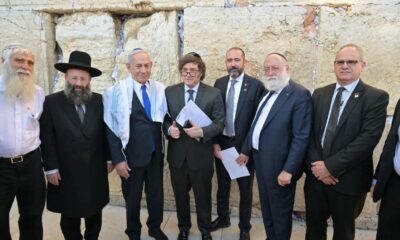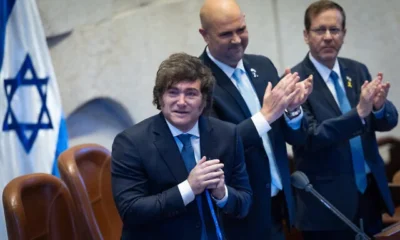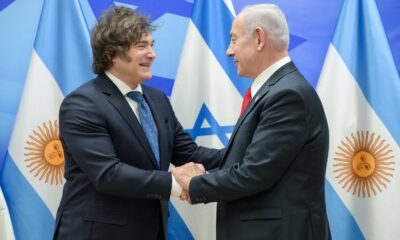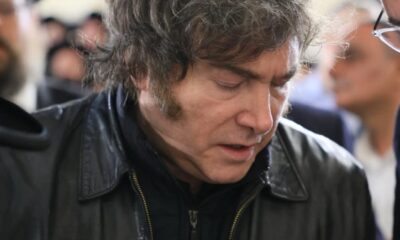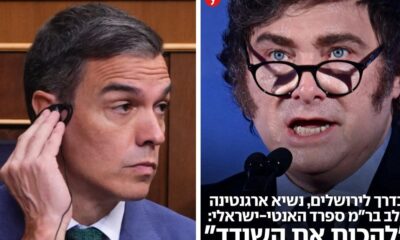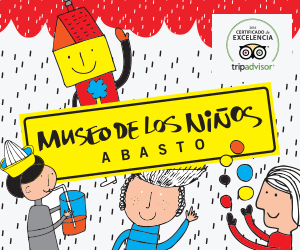Argentina
AMIA. Argentina and the world commemorate the 25th anniversary of the bombing
Agencia AJN.- President Macri has planned a series of activities for the 25th anniversary of the AMIA attack. He is also expected to sign a decree declaring Hezbollah a «terrorist» organization. US Secretary of State Mike Pompeo arrives to Buenos Aires to participate in a meeting on terrorism. The main event will take place on Thursday at 9:53 in front of the AMIA building.
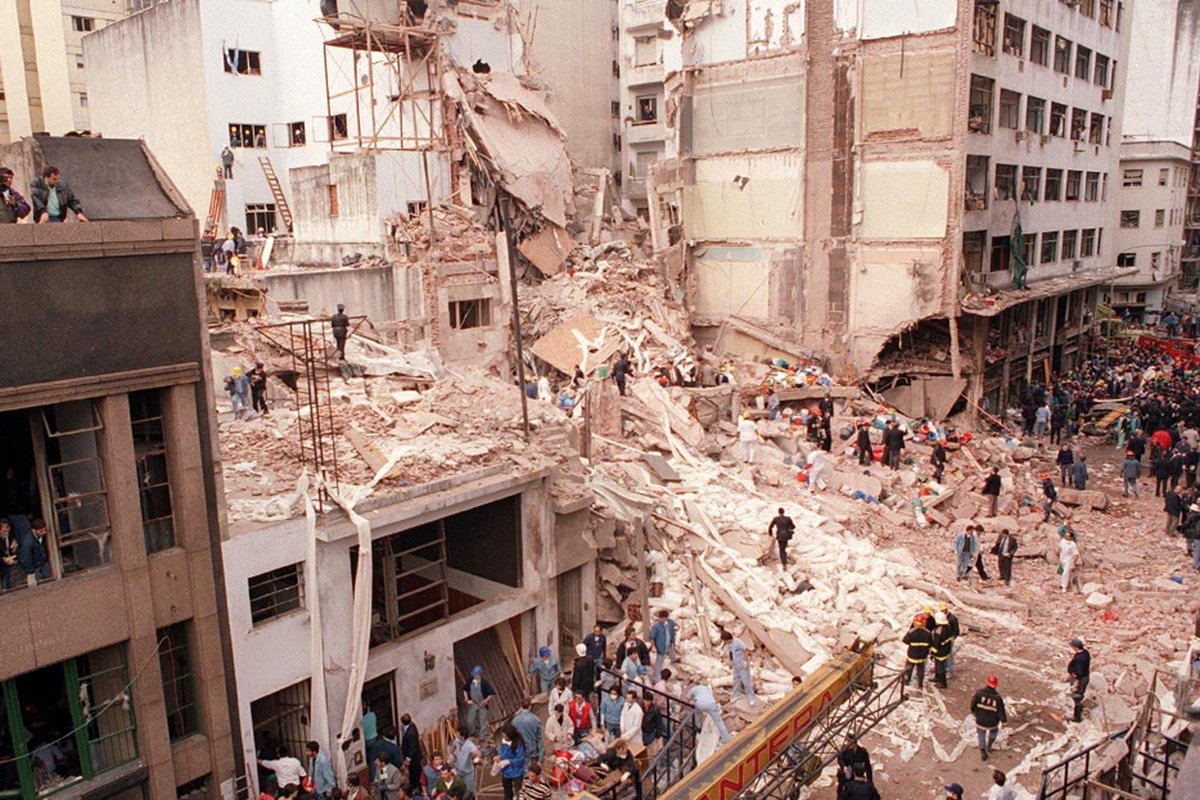
Agencia AJN.- With epicenter in Buenos Aires, Argentina and the world will join next Thursday to commemorate the 25th anniversary of the AMIA bombing, the most tragic terrorist attack suffered by the South American country that killed 85 people and injured hundreds. This new anniversary comes with a renewed demand for justice, although part of the expectation is centered on President Mauricio Macri’s decision to declare Hezbollah, the Lebanese organization accused of having organized the attack, as a «terrorist group» through a decree he would sign in the next few hours.
AMIA´s president, Ariel Eichbaum, said in an interview with Agencia AJN that he expects Argentina to move foward in declaring Hezbollah a terrorist group. «We are making progress in England and the United States with Hezbollah being declared a terrorist organization and now we expect Argentina to take a step in that direction. Nations cannot tolerate terrorism to have sources of financing in their countries», he added.
For his part, DAIA´s president, Jorge Knoblovits, agreed. «Hezbollah is Iran, it is the branch that makes attacks outside the Middle East. Iran is accused, its officials are accused. Hezbollah and Iran are exactly the same,» the head of the political arm of the Argentine Jewish community said.
According to official information, president Macri will lead the presentation of the book «Justicia Perseguirás» (You will seek justice), a publication in homage to the 25 years of the AMIA attack, on Thursday afternoon in an act in the Government House organized between the Secretariat of Human Rights and Cultural Pluralism and the Latin American Jewish Congress.
In addition, the U.S. Secretary of State Mike Pompeo will land in Buenos Aires on Friday to preside over the «Second Hemispheric Ministerial Conference on Combating Terrorism,» which will be held at the San Martin Palace and in which foreign ministers and «counter-terrorism specialists» from Latin America will participate. The visit appears to be supporting Macri’s decision to join the initiative of the Donald Trump administration and the Israeli government to declare Hezbollah «terrorist». A meeting is also planned with the authorities of the Argentine Jewish community, where Pompeo will be one of the speakers along Argentine Foreign Minister Jorge Faurie.
The Secretary of Human Rights, Claudio Avruj, confirmed that the Government will proceed with the creation of a register of people and entities linked to terrorism and its financing.
The central commemoration ceremony for the 25th anniversary of the AMIA attack is scheduled for Thursday, July 18, at 9:53 a.m., the exact time of the bomb explosion, in front of Pasteur 633, in the Once neighborhood of Buenos Aires. Under the slogan «85 lives uprooted. 25 years of impunity», the ceremony will feature the words of Eichbaum, director of the Hospital de Clínicas at the time of the attack Dr. Florentino Sanguinetti, and Sofia Guterman, mother of Andrea, one of the attack victims. The musicians Lito Vitale and Juan Carlos Baglietto will also participate. As a tradition, the ceremony will begin with the reading of the names of each of the people who lost their lives in the attack.
Almost in parallel, Memoria Activa will pay tribute to the victims in Plaza Lavalle under the slogan #25yearsofprovenimpunity. It is scheduled for 9.30 a.m. and will be attended by the head of Abuelas de Plaza de Mayo Estela de Carlotto, Taty Almeida, member of Madres de Plaza de Mayo Línea Fundadora, journalist Iván Schargrodsky, actress Alejandra Darín and singer Sandra Mihanovich.
Although the tributes will take place on Thursday, the Argentine Ministry of Foreign Affairs, in collaboration with the World Jewish Congress (WJC), carried out a series of activities in Argentine embassies in different countries during the last days.
For its part, AMIA broadcasted an institutional video called «Birthday», where 26 young people who turn 25 years old on that date agree: «On July 18 I will turn 25. Impunity too».
A quarter of a century after the explosion of the Jewish mutual, justice could only determine that the attack was perpetrated with a Renault Trafic truck with approximately 400 kilos of explosives that were detonated in front of the building at 633 Pasteur Street. For this fact not a single sentence was issued and the Fiscal Investigation Unit (UFI) AMIA already admits that time plays against the investigation and punishment of those responsible.
In line with the investigation carried out by the late prosecutor Alberto Nisman, the UFI-AMIA, currently in charge of prosecutor Sebastián Basso, ratifies that Hezbollah’s armed wing ordered the preparation and execution of the attack. The bombing was planned during a meeting in Mashad (Iran) in August 1993. According to the hypothesis of the investigation, the Lebanese Salman Salman would have been the organizer of the attack. So far, the international arrest warrant issued against Salman has been maintained, as well as against the Iranians Mohsen Rabbani, Ali Rafsanjani, Ali Akbar Velayati, Hadi Soleimanpour, Ali Fallahijan, Mohsen Rezai, Agmad Vahidi, Ahmad Reza Asghari and Imad Moughnieh (killed in an attack in 2008).
In the middle of these 25 years there was a failed trial against a group of Buenos Aires policemen, and another trial with a conviction for covering up the attack.
A Memorandum of Understanding was also signed with Iran, which was endorsed by the Argentine parliament but later declared unconstitutional by the judiciary. Precisely because of this political fact, prosecutor Nisman accused former president Cristina Fernández de Kirchner of an alleged «criminal» maneuver to try to guarantee the «impunity» of the Iranians accused of carrying out the bombing. He was found dead in his department of Puerto Madero the day before his presentation in Congress. Community organizations also expressed their disapproval of the signing of the agreement with Iran.
Argentina
Entrevista con Marcos Aguinis: su nuevo libro y la amenaza del antisemitismo
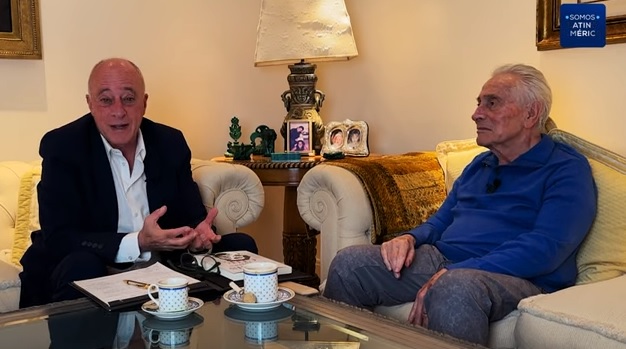
Agencia AJN.- Con sus 90 años, Marcos Aguinis acaba de publicar “Intimidades del Che”, una obra de ficción que explora la vida de Ernesto “Che” Guevara. En el marco de un ciclo de entrevistas conducido por Daniel Berliner, director de la Agencia AJN, el escritor reflexionó sobre su nuevo trabajo y sobre fuerte aumento del antisemitismo a nivel mundial.
“El 7 de octubre es un acontecimiento muy reciente. Y que aparentemente era imposible que ocurriera. Uno tiene que pensar que lo fundamental es que los judíos no nos convirtamos en fanáticos. Que no imitemos a nuestros enemigos. Y odian a Israel sin saber qué son los judíos. A muchos antisemitas se les pregunta ¿usted sabe dónde queda el río Jordán? Ni idea, responden. Nos encontramos con una fuerte ignorancia a la que tenemos que enfrentar mediante la paz, el diálogo, que lleve a que este enfrentamiento desaparezca. Al desaparecer este motivo de odio, desaparecerán otros motivos de odio”, destacó Aguinis.
“Es más fácil odiar que amar, y esto tiene que ser combatido. Y es combatido por las mentes más lúcidas. El antisemitismo que ahora se propaga en las universidades es algo que tiene poco a poco producir la vergüenza de los universitarios. No saben qué odian”, agregó.
La entrevista fue transmitida por Dnews en el ciclo “Diálogos”, una entrega semanal que propone un espacio de conversación inteligente, plural y comprometido con la actualidad.
En cada emisión, personalidades relevantes del ámbito político, social, cultural y comunitario se sientan a dialogar sobre los temas que marcan la agenda nacional e internacional.
“Hace unos años Jorge Fernández Díaz me tituló a mí ‘hombre del renacimiento’, porque quedó impresionado por la cantidad de actividad que hago. Según él, eso me hermanaba con la gente del renacimiento, que tenía varias profesiones y en todas ellas tuvo algún tipo de brillo”, expresó Aguinis al principio de la entrevista.
Para ver el programa completo:
Argentina
Rafael Grossi: “El conflicto entre Israel e Irán está tomando una dimensión mucho más amplia”
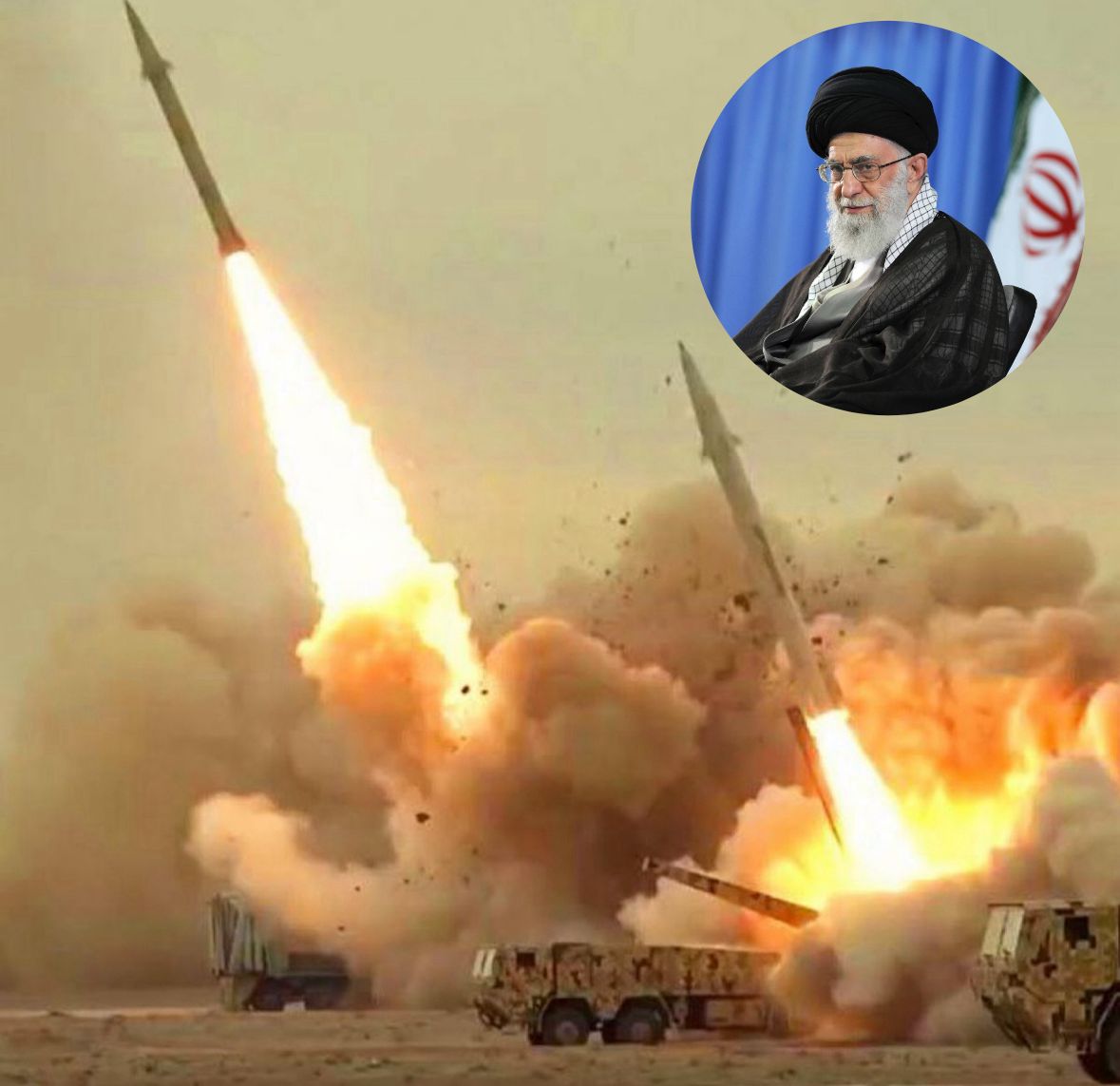
Agencia AJN.- El director general del Organismo Internacional de Energía Atómica (OIEA), Rafael Grossi, destacó que los ataques israelíes “en un primer momento fueron orientados exclusivamente a ciertas instalaciones nucleares y ahora el conflicto está tomando una dimensión mucho más amplia, incluyendo otros objetivos que no son nucleares”.
“La historia ha tomado un giro más dramático a partir del momento en que Israel, la semana pasada, inició una serie de ataques, que en un primer momento fueron orientados exclusivamente a ciertas instalaciones nucleares y ahora el conflicto está tomando una dimensión mucho más amplia, incluyendo otros objetivos que no son nucleares. La parte nuestra obviamente tiene que ver con las instalaciones nucleares y por eso ha habido una serie de reuniones en la Junta de Gobernadores del OIEA. El día viernes estuve hablando al Consejo de Seguridad de las Naciones Unidas para informar a todos los países acerca de la situación y cuáles son los peligros que pueden derivarse”, afirmó Grossi en diálogo con el periodista Eduardo Feinmann en Radio Mitre.
-¿Hay riesgo químico cuando un misil ataca a una de estas plantas nucleares?
-Hay un riesgo nuclear en primer lugar, aunque también puede haber un riesgo químico. Trato de diferenciar las dos cosas. Hay distintas instalaciones. En estas instalaciones que tienen distintas funciones, algunas son para enriquecimiento de uranio, otras son para fabricación de combustible, otros son laboratorios. Y en esos lugares entonces lógicamente hay material nuclear. Si el material nuclear, a raíz de una explosión o del impacto de un proyectil de distinta naturaleza, es liberado al medio ambiente, puede haber entonces un impacto ambiental, como radiación en la atmósfera. Esto es lo que se está tratando de determinar. Por el momento, han sido muy graves, pero si usted quiere que nos detengamos en la cuestión de la radiación, han tenido un efecto muy limitado en ese aspecto, y no me refiero al impacto o a la destrucción que han causado, se han limitado a instalaciones que tenían una cantidad relativamente limitada de material nuclear y por eso la contaminación ha sido muy limitada al lugar donde se produjo el impacto. Esto es obviamente por el momento.
-¿Usted está al tanto de una planta nuclear que está bajo tierra que tienen los iraníes y que podría llegar a ser bombardeada por Trump?
-Sí, claro, la inspeccionamos, yo la he visitado particularmente. Hay fundamentalmente dos instalaciones en las que Irán justamente ha puesto material y equipo nuclear bajo tierra a raíz de ataques anteriores que han habido en Irán, de tipo sabotaje, nunca atribuidos a ningún país. Pero el hecho es que Irán había sufrido ya en alguna de sus instalaciones sabotajes internos o ataques con drones, entonces en ese momento los iraníes decidieron, hace dos o tres años, comenzar a poner bajo tierra ciertos equipos e instalaciones.
-Para la bomba atómica, la clave está en el uranio enriquecido. ¿A qué porcentaje ya lo tenían o lo tienen preparado los iraníes?
– Para tener un arma nuclear hace falta uranio enriquecido, también puede ser plutonio, pero en el caso de Irán, lo que ellos han estado acumulando es uranio enriquecido. El uranio tiene que estar enriquecido a un grado de 90% de un isotopo, que es una variedad de la partícula de uranio, al 90%, y ellos están acumulando al 60%. No han llegado a acumular al 90%, pero de querer hacerlo es un pasito más. Ellos tienen el material, y ese material sería suficiente para 6, 7, 8 armas nucleares, pero esto no quiere decir que tengan hoy un arma nuclear.
-Israel y Estados Unidos denuncian que estaban a punto de tener 15, y entonces hicieron ese ataque preventivo para que no las terminen de fabricar.
-Eso es lo que dicen ellos, correcto. Lo que nosotros decimos, es que es inquietante esto, lo hemos informado, hemos inclusive, tenido una evaluación bastante crítica con relación a la manera en que Irán nos respondía o nos daba información necesaria sobre este tema, que ha sido bastante fragmentaria, pero no podemos decir que hoy tenga un arma nuclear. Para eso hace falta más material.
-¿Esto usted lo habló con Trump y con Netanyahu?
-No directamente con ellos, pero con gente muy cercana a ellos, sí, muy cercana.
-¿Y usted cuando los iraníes, el Ayatolá o quien sea, le cuentan lo que tienen, usted les cree?
-En cuanto a lo que tienen, nosotros sabemos lo que tienen, el tema es lo que tienen y no sabemos. O lo que no informan, esto lo he estado denunciando mucho y hace tiempo en el sentido que Irán, siempre decían o dicen que ellos no tienen nada que ocultar. Entonces nosotros, como Organismo Internacional de Energía Atómica, les decimos a ellos, si no tienen nada que ocultar, entonces tienen que mostrarnos mucho más. Ellos siempre han evadido un poco esto y bueno, estamos en esta situación en la que estamos.
-
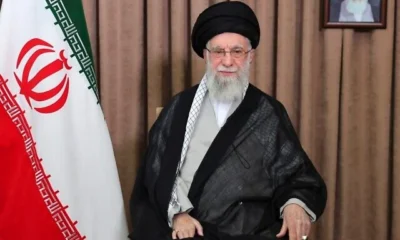
 Medio Orientehace 7 horas
Medio Orientehace 7 horasKhamenei ha elegido a tres posibles sucesores en caso de ser asesinado
-
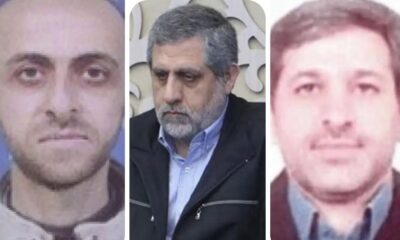
 Medio Orientehace 7 horas
Medio Orientehace 7 horasIsrael elimina a tres altos responsables iraníes y de Hamás, hombres claves en la financiación y armamento del terrorismo
-
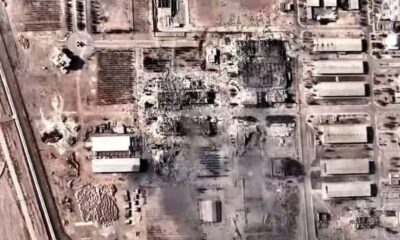
 Medio Orientehace 6 horas
Medio Orientehace 6 horasLas FDI atacan la central nuclear de Isfahan, en el centro de Irán
-
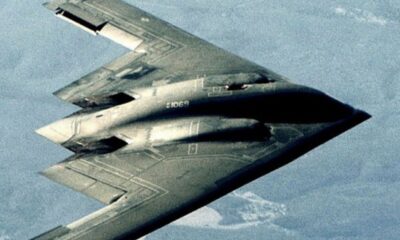
 Medio Orientehace 5 horas
Medio Orientehace 5 horasEstados Unidos despliega bombarderos B-2 y crece la tensión con Irán
-
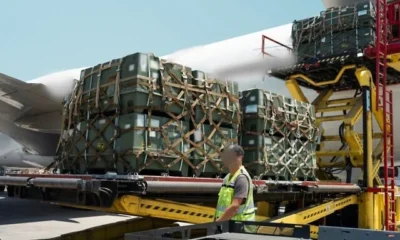
 Israelhace 5 horas
Israelhace 5 horasIsrael recibe cargamento militar de Estados Unidos y Alemania, Irán denuncia «complicidad estadounidense»
-

 Medio Orientehace 5 horas
Medio Orientehace 5 horasColapso casi total de Internet en Irán, la web de IRNA queda sin conexión
-

 Medio Orientehace 4 horas
Medio Orientehace 4 horasMientras la guerra de Israel contra Irán entra en su segunda semana, su misión se prolonga – análisis




